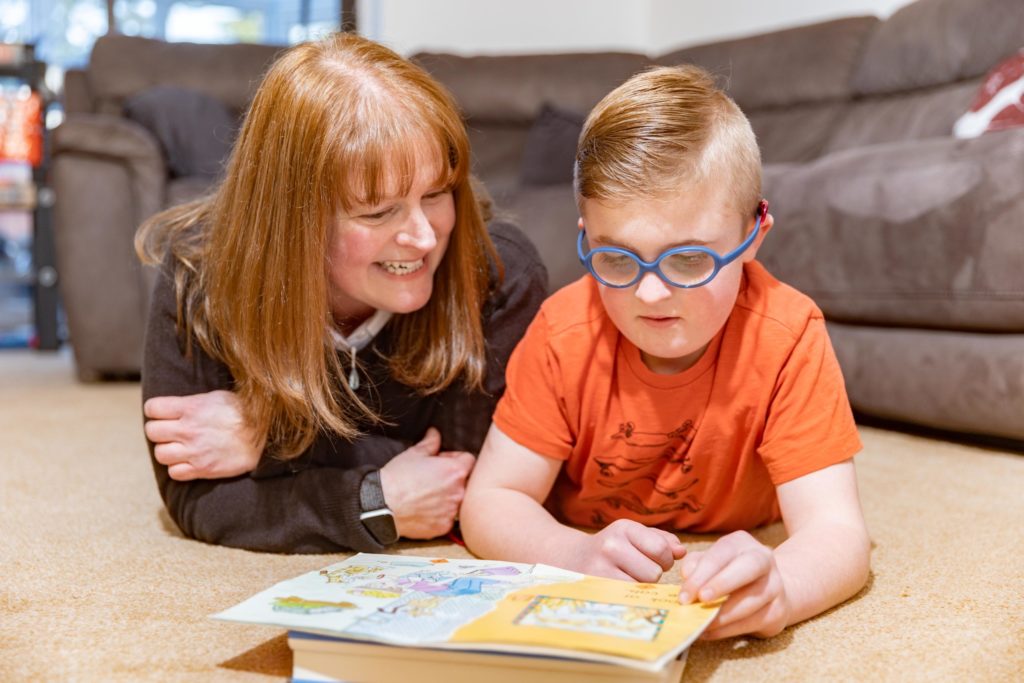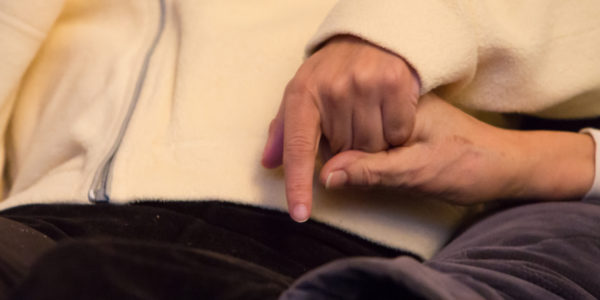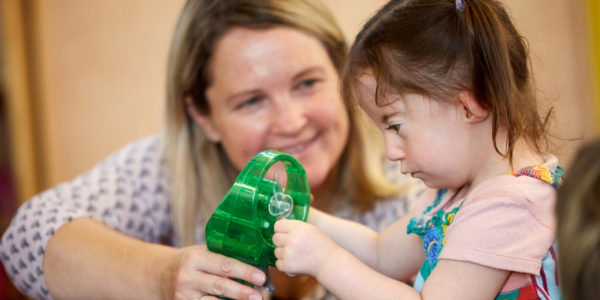What benefits can you claim if you’re a carer?
If you care for a disabled person, you might be entitled to help with your living costs.
It can be a little overwhelming and confusing to work out what you’re entitled to. That’s why we’ve put together this brief overview of carer benefits.
Not sure if you’re a carer? Read our page about what a carer is and what they do.
Find out more about:
- Carer’s Allowance
- Universal Credit
- Carers’ Premium or Carers’ Addition
- Carer’s Credit
- Benefits for the person you support
- More help with day-to-day costs
Carer’s Allowance
Wherever you live in the UK, you may get Carer’s Allowance if you care for someone who is disabled.
What is Carer’s Allowance?
Carer’s Allowance is a benefit to support living costs of anyone who has caring responsibilities for someone else.
For example, you might care for your disabled child, or for an elderly relative.
Who can get Carer’s Allowance?
You can claim Carer’s Allowance if you care for someone for at least 35 hours per week. You must also earn less than £139 per week.
The person you’re caring for must receive a relevant benefit. Find out more about which benefits qualify on the Turn2Us website.
Also:
- You do not have to be related to, or live with, the person you care for.
- You do not get paid more if you care for more than one person.
- If someone else also cares for the same person as you, only one of you can claim Carer’s Allowance.
- You’ll have to pay tax on Carer’s Allowance if your income is over your Personal Allowance.
- For each week you get Carer’s Allowance, you automatically get National Insurance credits.
- If you live in Scotland and get Carer’s Allowance, you may also get Carer’s Allowance Supplement.
How much is Carer’s Allowance?
The weekly rate for Carer’s Allowance is £81.90.
Is Carer’s Allowance means-tested?
No, Carer’s Allowance is not means-tested. (“Means-tested” is when the amount of a benefit you receive depends on what you earn, or how much you have in savings.)
However, you can only claim it if you earn less than £139 per week.
You will have to pay tax on your Carer’s Allowance payments if you earn more than your Personal Allowance.
How to claim Carer’s Allowance
You can apply for Carer’s Allowance online or by post.
Find out more about how to claim Carer’s Allowance at gov.uk.
How Carer’s Allowance works with other benefits
You won’t get Carer’s Allowance, or you’ll get a reduced amount, if you have some other benefits, including:
- State retirement pension.
- Contributory Employment and Support Allowance.
- Contribution-based Jobseeker’s Allowance.
- Maternity Allowance.
If your Carer’s Allowance is either the same as or less than the other benefit, you will get the other benefit rather than Carer’s Allowance.
If the other benefit is less than your Carer’s Allowance, you will get the other benefit and the balance of your Carer’s Allowance on top.
The rules around this can be confusing. To figure out whether it’s best for you to make a claim or not, it could be helpful to speak to Citizens Advice.
Find out more about how Carer’s Allowance impacts other benefits.
Skip ahead to find out how Carer’s Allowance might impact Universal Credit and other means-tested benefits.
Universal Credit
Universal Credit is a monthly payment to support living costs. It’s available for people on low incomes in lots of different circumstances. It’s replacing the following benefits:
- Child Tax Credit.
- Housing Benefit.
- Income Support.
- Income-based Jobseeker’s Allowance (JSA).
- Income-related Employment and Support Allowance (ESA).
- Working Tax Credit.
If you already receive any of these benefits, you don’t need to do anything. The Department for Work and Pensions (DWP) will contact you if you’re being moved to Universal Credit.
If you’re not already receiving any of these benefits, you might want to consider applying for Universal Credit.
Find out more about who is eligible for Universal Credit.
Carer element of Universal Credit
If you claim Universal Credit and you care for someone for more than 35 hours per week, you can also get the carer element of Universal Credit.
This is an additional amount that’s paid on top of your Universal Credit payment.
How much is the carer element?
In the financial year 2024-2025, the carer element is worth £198.31 a month.
Does Carer’s Allowance affect Universal Credit?
Yes. If you’re applying for Universal Credit, and you receive Carer’s Allowance, your Carer’s Allowance will count as part of your income.
As Universal Credit is a means-tested benefit, this means you will get less of it if you receive Carer’s Allowance.
Whether you’ll be better off overall depends on your circumstances. You could speak to Citizens Advice for guidance, or use the benefits calculator from Turn2Us.
Carers’ Premium or Carers’ Addition
What is the Carers’ Premium?
If you get Carer’s Allowance, you can get an extra amount called a Carers’ Premium added to any of the following benefits:
- Pension Credit.
- Income-based Jobseeker’s Allowance.
- Income-related Employment and Support Allowance.
- Income Support.
- Housing Benefit.
- Council Tax Support (England, Scotland and Wales. Northern Ireland uses a rates system).
When it’s added to Pension Credit, it’s called a Carers’ Addition. This means the same thing.
The rules can be complicated. For help and more information contact Citizens Advice.
Carer’s Credit
If you care for someone for at least 20 hours a week, you might be able to get Carer’s Credit.
What is Carer’s Credit?
Carer’s Credit is a National Insurance credit that fills gaps in your National Insurance record.
This means that you can take on caring responsibilities without risking your State Pension.
Visit gov.uk to find out more about Carer’s Credit.
Benefits for the person you support
It’s important to make sure the person you support is getting what they’re entitled to. If you’re not sure how your benefits might affect each other, speak to Citizens Advice.
More help with day-to-day costs
- Grants for disabled people.
- Help with energy and food costs.
- Help with travel and transport costs.
- Funding for sports and leisure activities.
To find out what support is on offer in your local area, find your local council.
To figure out what benefits you’re eligible for, use the Turn2Us Benefits Calculator.
Stay in touch

Get updates about our vital work, including volunteering, making a donation or supporting Sense campaigns.
This content was last reviewed in April 2024. We’ll review it again next year.


